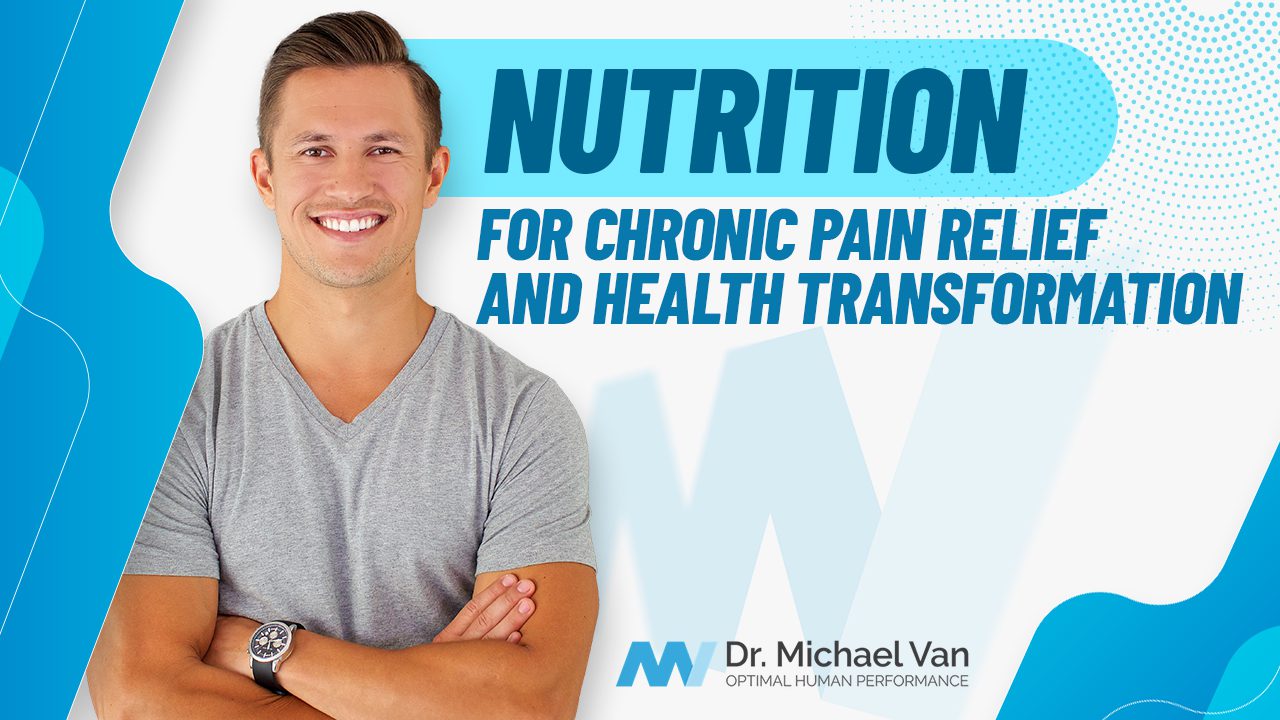Nutrition for Chronic Pain Relief and Health Transformation

Chronic pain affects millions of people worldwide, significantly impacting their quality of life and overall well-being. In the quest to find effective ways to manage chronic pain, many individuals focus solely on medications and physical therapy. While these interventions can be helpful, one crucial aspect of chronic pain management that is often overlooked is nutrition. A well-balanced diet that is rich in anti-inflammatory foods can not only help reduce pain but also support overall health transformation.
Dr. Michael Van, a specialist in chronic pain management and health transformation, understands the critical role of nutrition in alleviating pain and enhancing overall health. With his guidance, individuals experiencing chronic pain can learn how to make informed choices about their dietary habits and adopt an approach that supports their journey towards improved well-being and lasting health transformation.
In this informative blog series on www.drmichaelvan.com, we will explore various aspects of nutrition for chronic pain management, providing practical tips and resources for individuals seeking to optimize their dietary habits. The topics we plan to cover include:
- Understanding the relationship between diet and chronic pain, including the role of inflammation in pain perception
- The benefits of an anti-inflammatory diet in managing chronic pain and promoting overall well-being
- Practical tips for building a balanced, nutritious, and anti-inflammatory meal plan
- The importance of hydration in pain management and overall health
- Supplements and natural remedies that may aid in the reduction of chronic pain
With Dr. Michael Van's expertise and dedication to providing comprehensive, holistic health solutions, individuals experiencing chronic pain will be empowered with the knowledge and confidence needed to adopt dietary habits that support their pain management journey and overall well-being. Stay tuned to our blog for valuable insights into the world of nutrition for chronic pain management and overall health transformation, guided by Dr. Van's passion for helping his patients regain control of their lives and achieve lasting health and happiness.
Understanding the Relationship between Diet and Chronic Pain
An often-overlooked factor in chronic pain management is the direct connection between our dietary habits and pain perception. Several studies have shown that certain foods can contribute to inflammation in the body, which is a key player in the development and persistence of chronic pain. By understanding this relationship, individuals can make more informed choices about their diet and take a proactive approach to managing their pain.
Inflammation plays a vital role in the body's natural healing processes, but when it becomes chronic, it can contribute to increased pain sensitivity and a decreased ability to recover. Several factors can contribute to chronic inflammation, including poor dietary habits. Diets high in processed foods, refined sugars, and unhealthy fats can exacerbate inflammation, making it more difficult for individuals to manage their pain effectively.

Subscribe To Dr Mike's MVP Newsletter!
Exclusive content, interesting topics, real insights.

Subscribe To Dr Mike's MVP Newsletter!
Exclusive content, interesting topics, real insights.
The Benefits of an Anti-Inflammatory Diet in Managing Chronic Pain
Adopting an anti-inflammatory diet is a powerful way to combat chronic pain and promote overall well-being. This diet focuses on incorporating whole, nutrient-dense foods rich in natural sources of anti-inflammatory compounds, which can help reduce inflammation and support the body's natural healing processes.
Some benefits of an anti-inflammatory diet for chronic pain management include:
1. Reduced Pain: By targeting inflammation through diet, individuals may experience a reduction in pain symptoms, improving their quality of life and overall well-being.
2. Boosted Immune System: An anti-inflammatory diet can help support a healthy immune system, further aiding the body's ability to combat inflammation and infection.
3. Improved Mental Health: There is a strong connection between mental health and chronic pain. An anti-inflammatory diet can support improved mood and emotional well-being, making it easier for individuals to manage their pain effectively.
Practical Tips for Building a Balanced, Nutritious, and Anti-Inflammatory Meal Plan
With so many options and information available, it can be challenging to build a well-rounded, nutritious, and anti-inflammatory meal plan. Here are some practical tips to get you started on your journey to better pain management through nutrition:
1. Focus on Whole Foods: Choose foods that are close to their natural state and minimally processed. This means prioritizing fresh fruits and vegetables, whole grains, legumes, nuts, seeds, and lean proteins.
2. Eat a Rainbow: Aim to incorporate a wide variety of colorful fruits and vegetables, as different colors often signify the presence of diverse nutrients that provide anti-inflammatory benefits.
3. Limit Processed and Refined Foods: Cut back on processed foods, refined grains, and sugars, which can contribute to inflammation and exacerbate pain symptoms.
4. Choose Healthy Fats: Incorporate sources of healthy fats like omega-3 fatty acids, which are known for their anti-inflammatory properties. Foods rich in omega-3s include fatty fish, walnuts, flaxseeds, and chia seeds.
5. Stay Hydrated: Hydration is essential for overall health and well-being, including pain management. Aim to drink at least eight cups of water per day, and consider adding herbal teas, coconut water, or fruit-infused water for variety.
The Importance of Hydration in Pain Management and Overall Health
In addition to a well-balanced, anti-inflammatory diet, proper hydration plays a critical role in managing chronic pain and promoting overall health. Water is essential for numerous bodily functions, including digestion, circulation, and temperature regulation, making it vital for individuals dealing with chronic pain.
Dehydration can exacerbate pain symptoms and hinder the body's natural healing processes. Drinking enough water throughout the day not only promotes optimal health but also supports the effectiveness of other pain management strategies such as physical therapy and chiropractic care.
Conclusion
Good nutrition and proper hydration are pivotal components of a comprehensive chronic pain management plan, with the potential to deliver lasting relief and promote overall health transformation. Under Dr. Michael Van's guidance, patients can develop personalized, effective plans to incorporate nutrition and hydration strategies into their pain management routines. Stay tuned to our blog for further insights into the power of nutrition and hydration in the journey to better health and well-being, guided by Dr. Van's dedication to helping patients reclaim their lives free from pain.
If you're looking to optimize your health and performance, Dr Michael Van is the expert you need to see. As a skilled Huntington Beach chiropractor, he can help you achieve your health goals and transform your life.
Book an appointment with Dr Van today and start your journey towards a healthier, happier you.
Dr. Michael Vanderschelden, DC
18600 Main St STE 110
Huntington Beach, CA 92648
Copyright ©2026
Site designed by iTech Valet
Subscribe To Dr Mike's MVP Newsletter. Exclusive Content ONLY!
Dr. Michael Vanderschelden, DC
18600 Main St STE 110
Huntington Beach, CA 92648
Copyright ©2026
Site designed by iTech Valet
*These statements have not been evaluated by the Food and Drug Administration. These products are not intended to diagnose, treat, cure or prevent any disease.
